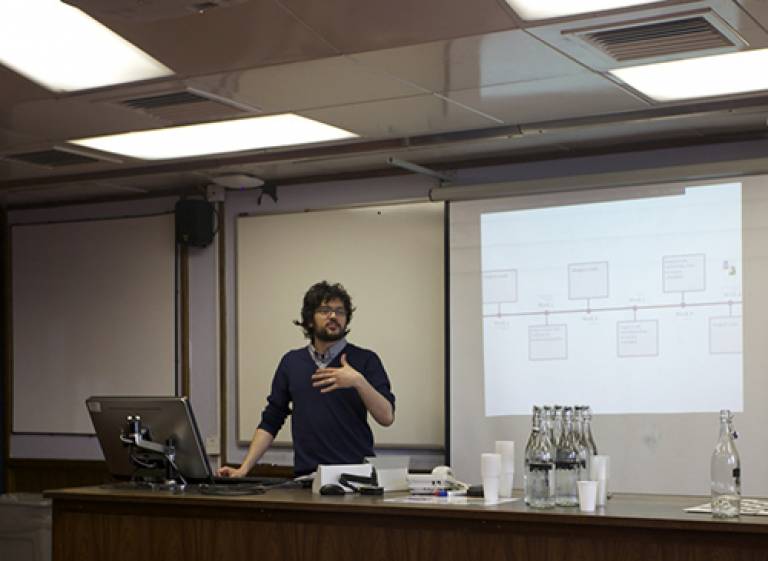Making history with iPads, peer assessment and MyPortfolio
Dr Paul Walker (UCL Arena Centre), and Dr Zubin Mistry, UCL History, presented attendees at the UCL Teaching and Learning Conference 2014 with a pioneering first-year undergraduate history module.

22 August 2014
Making History is a core course for all first-year history students in their first term.
Student groups were each asked to choose a historical question related to UCL’s London environment from a list constructed by staff. Students then had the term to complete their research and to present their findings.
In the meantime, lectures and seminars were used to help students develop both discipline-specific and generic skills:
- enhancing their ability to make best use of textual and material resources;
- their ways of working in peer groups;
- their digital literacy; and
- their ability to produce oral presentations.
The implications for their CV and career development were made an explicit feature of this module and its companion module, Writing History, taken at the same time.
Technology
In order to help them create online content for their project reports, students were given iPad Minis, which had been purchased by the department.
They were also tasked with compiling their content on MyPortfolio – UCL’s e-portfolio and blogging tool, based on the open-source Mahara platform.
Content included three compulsory components:
- collaboratively written essays on research findings
- historiography
- teamwork
As well as three or four optional components.
The outcomes of their research were presented on a web page, incorporating texts, images and, in several instances, video records and recreations arising from the research. The results were overall impressive, some outstanding.
Peer assessment
The online outputs accounted for 50 per cent of the mark for the course, assessed by staff and teaching assistants in the department.
The remaining 50 per cent was based on the team presentations – 40 per cent determined by staff marking and the remaining 10 per cent decided by student peers.
It was felt that the weighting of marks meant that peer assessment was not viewed as unduly controversial.
Benefits
Peer assessment meant that students paid greater attention to each others’ work and also had to learn how to offer assessment using comprehensive criteria. The group format gave students the chance to face the challenge of working as a team.
The overall intention of the module was to give students first hand experience of working as historians.
It was designed to encourage creative, lateral thinking about the past, active engagement with the rich historical resources afforded by UCL’s London environment and reflective collaborative learning, using a wide range of both primary and secondary sources.
It provides an excellent exemplar of research-based education, providing a rich and inspiring experience for students, making for a great start to their ongoing learning journeys.
 Close
Close

